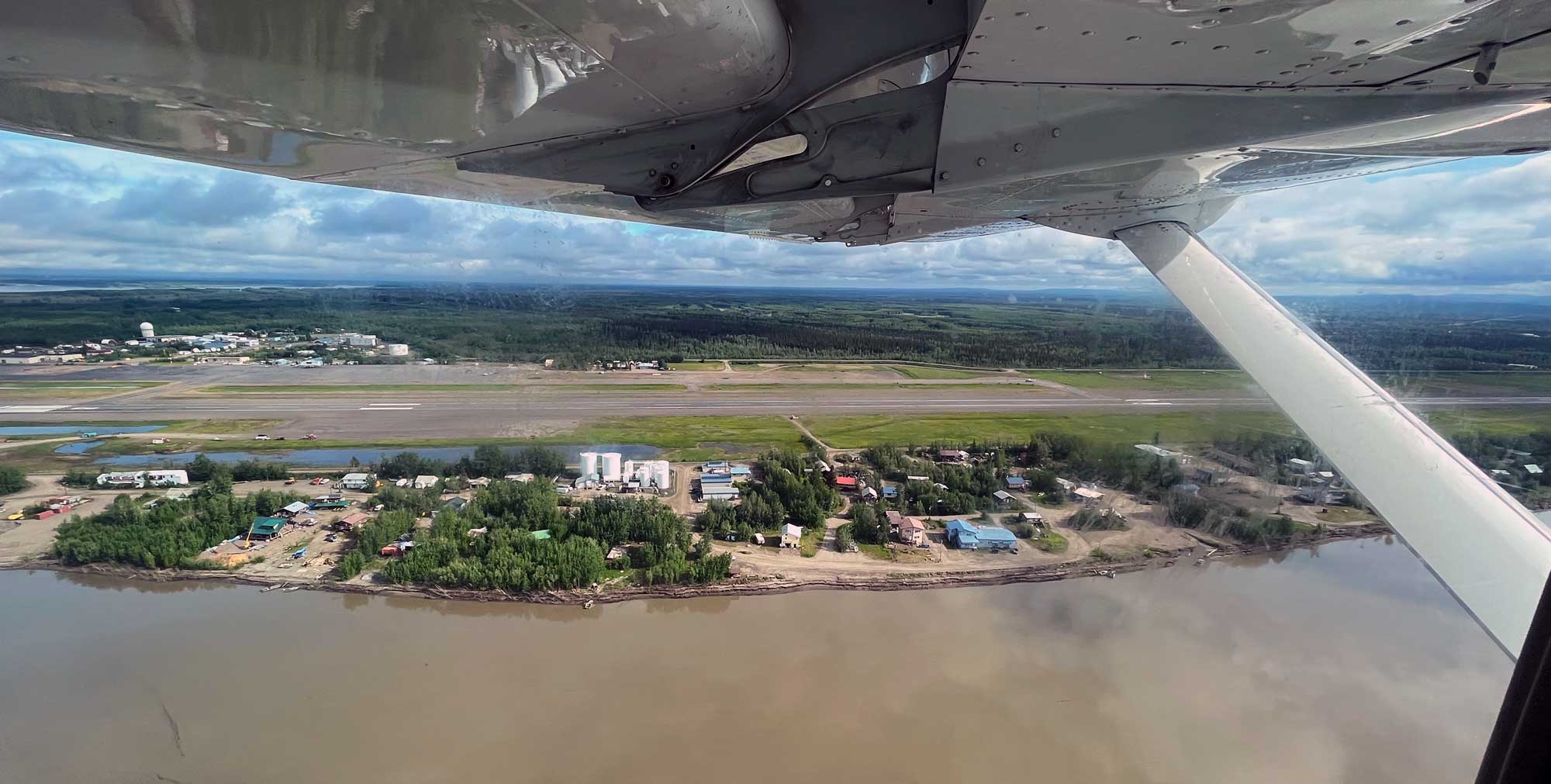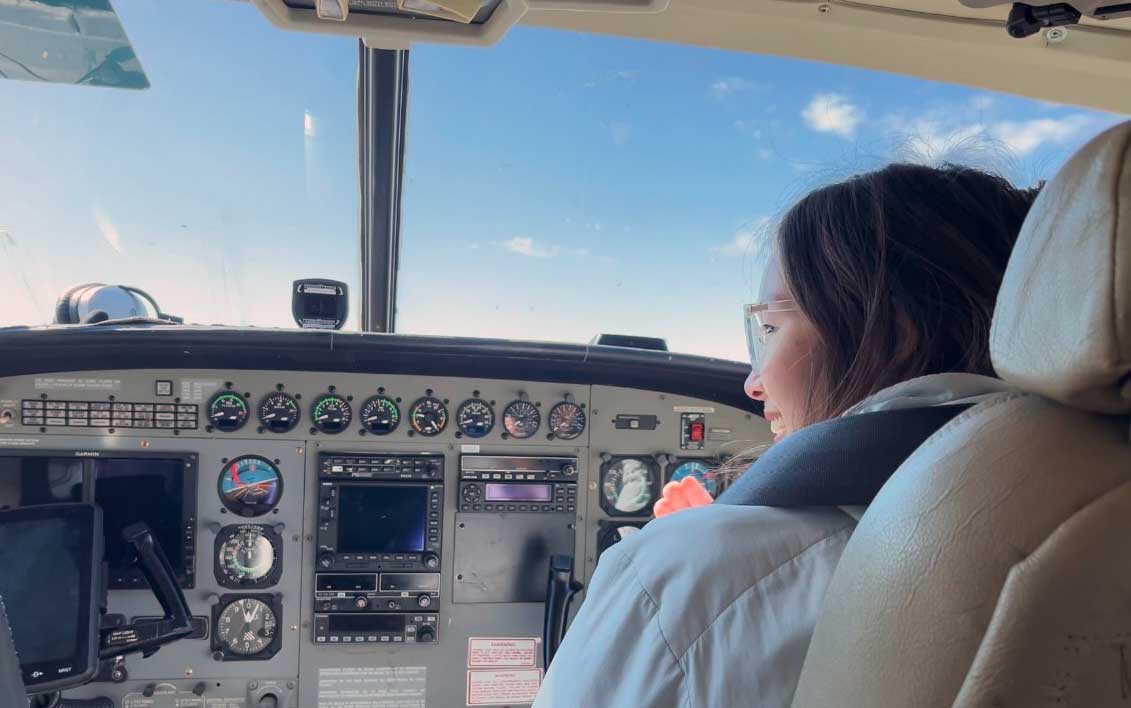Name: Cara Chapman, MS2, Alaska
Title: Promoting Healthy Living Habits through Community Events in Galena, Alaska
The project: Galena, population of 475, is the largest city in the Yukon–Koyukuk Census Area. That’s the largest county or county equivalent in the nation – about the same size as the entire state of Montana. It’s also the least densely populated of any county or county equivalent in the country.
In other words, Galena is isolated.
Says Wikipedia: “Galena is inaccessible by road to other parts of Alaska. Residents rely on river cargo in the brief summer season for the bulk of their needs, and planes, boats, or snowmachines to access the outside world.” Above you see a photo of Chapman in the plane that took her to Galena.

The results of her literature review:
- Educating about health habits at younger ages can lead to sustained positive habits in adulthood.
- Teaching simple, focused lessons with interactive components shows enhanced understanding and retention of knowledge in children.
- Efficacy of prolonged change within communities of low socioeconomic status and minority populations relies upon collaboration with local partners.
The project: Chapman collaborated with two respected community entities, Tanana Chiefs Conference (TCC) Wellness and Prevention, and the Edgar Nollner Health Center. Chapman worked with them to create many activities promoting health living and wellness, ranging from mental health to appropriate use of helmets and lifejackets. You can see her poster here with more details.
Personal reflections: “This project allowed me to see the strengths and challenges within a rural community and how those are addressed with limited resources. It granted me the opportunity to understand how imperative it is to collaborate with community partners and truly listen to community input when wanting to address and change an issue. Furthermore, it showcased the resilience and significance of what communities can achieve when working together.”
“Ultimately, I felt that I gained a great deal of knowledge and perspective on the wide scope of practice the providers carry out that includes more than just medical care as they are the sole providers in a rural area. My RUOP experience has given me many opportunities to reflect upon what I value, how I want to practice in the future, and how I want patients to feel when receiving care as some key points. “

